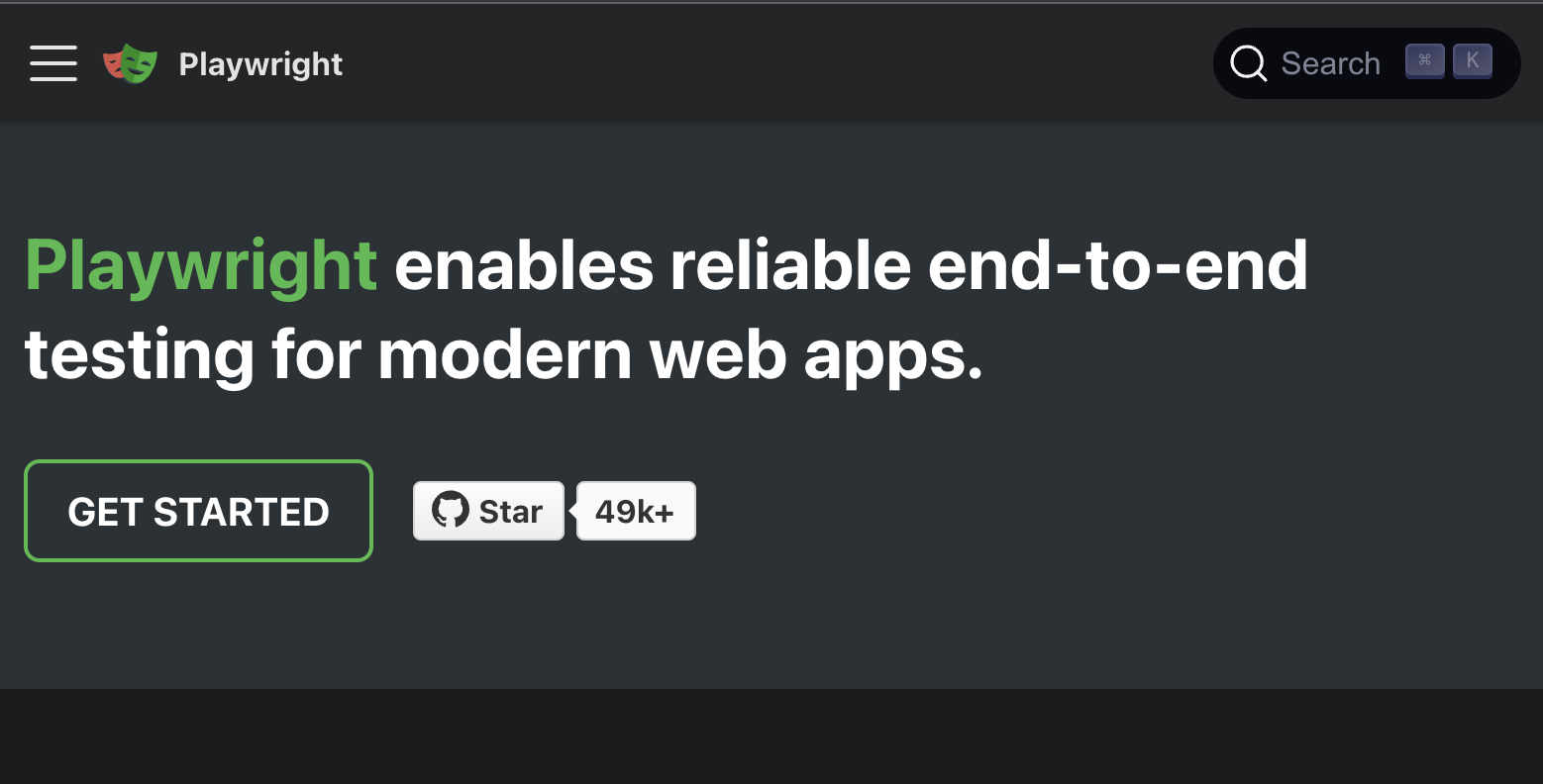
Vite Setup com Playwright - Part 6
Playwright
Com playwright começamos pelo yarn create dele:
yarn create playwright

Workflow como false:

E ele deve instalar nas dev dependências o playwright e deve salvar ai os plugins para o eslint também
E eu mudei algumas coisas no nosso package.json script, adicionando os testes e2e e quebrando em dois a forma de build:
{
//outros scripts acima
"test:playwright": "playwright test --headed --config=playwright.config.ts --project=chromium",
"test:playwright:helper": "npx playwright codegen http://localhost:3000"
//outros scripts abaixo
}
E no playwright eu só defini as portas onde ele deve rodar:
baseURL: "http://localhost:3000",
{
webServer: {
command: "npm run start",
port: 3000,
timeout: 120 * 1000,
reuseExistingServer: !process.env.CI,
}
}
Deletei também a pasta de test-examplos e no folder e2e eu criei esse arquivo counter.spec.ts:
└── e2e
└── counter.spec.ts
E o nosso counter deve ficar assim:
import { test, expect } from "@playwright/test";
test("get started link", async ({ page }) => {
await page.goto("http://localhost:3000/");
await expect(page.getByTestId("counter-view")).toBeVisible();
await expect(page.getByTestId("counter-view")).toHaveText("0");
await page.getByRole("button", { name: /increment/i }).click();
await expect(page.getByTestId("counter-view")).toHaveText("1");
});

Bem, nesse momento tudo deve rodar bem, contudo eu quero só deixar um pouco mais organizado para que você possa rodar em um ambiente de produção em um CI/CD de verdade e vamos criar as seguintes pastas:
└── e2e
└── components
└── counter.ts
└── tests
└── counter.spec.ts
└── tsconfig.json
└── vite.config.ts
O primeiro arquivo é para gerenciar os nossos folders e fazer ser lido os mesmos, que é o tsconfig.json:
{
"compilerOptions": {
"noUnusedLocals": true,
"strict": true,
"strictNullChecks": true,
"baseUrl": ".",
"module": "esnext",
"moduleResolution": "node",
"paths": {
"components/*": ["./components/*"],
"tests/*": ["./tests/*"]
},
"resolveJsonModule": true,
"noEmit": true,
"allowJs": true,
"esModuleInterop": true,
"forceConsistentCasingInFileNames": true,
"jsx": "preserve",
"lib": ["ESNext", "DOM"],
"target": "esnext",
"skipLibCheck": true
},
"exclude": ["node_modules"]
}
O segundo é só uma instancia do playwright para rodarmos bem a nossa aplicação:
import type { PlaywrightTestConfig } from "@playwright/test";
export default {
use: {
baseURL: "http://localhost:8080",
},
} as PlaywrightTestConfig;
E agora só vamos organizar o nosso counter para poder lidar os diversos caminhos de testes e o counter.spec para rodar os nossos testes, e para isso vamos passar os dados pelo nosso construtor e sempre instanciando em nossos testes:
counter.ts:
import { expect, BrowserContext, Page, Locator } from "@playwright/test";
export class CounterPage {
readonly page: Page;
readonly context: BrowserContext;
readonly counterView: Locator;
readonly incrementButton: Locator;
constructor(page: Page) {
this.page = page;
this.context = page.context();
this.counterView = page.locator('[data-testid="counter-view"]');
this.incrementButton = page.getByRole("button", { name: "Increment" });
}
async goto() {
await this.page.goto("http://localhost:3000/");
}
async happyPath() {
await expect(this.counterView).toBeVisible();
await expect(this.counterView).toHaveText("0");
await this.incrementButton.click();
await expect(this.counterView).toHaveText("1");
}
}
counter.spec.ts:
import { test } from "@playwright/test";
import { CounterPage } from "components/counter";
test("get started link", async ({ page }) => {
const counterComponent = new CounterPage(page);
await counterComponent.goto();
await counterComponent.happyPath();
});
E bem, fechamos aqui a nosso setup, espero que tenham curtido e qualquer coisa segue aqui o link do repositório:
Github: Vite Setup